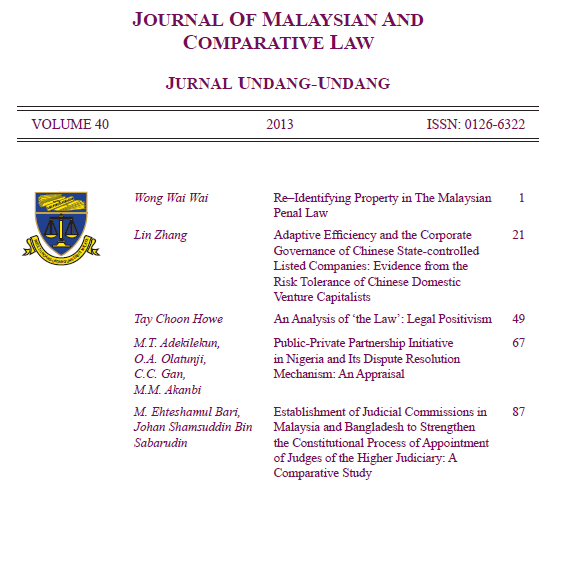Public-Private Partnership Initiative in Nigeria and Its Dispute Resolution Mechanism
An Appraisal
Keywords:
African, infrastructure, infrastructural, facilities, procurement, control, government, leakage, wastage, lackadaisical, skills, competencies, private, sectorAbstract
In the African countries, the provision and supply of infrastructural facilities and the procurement of other public utilities were, until recently, absolutely under the sole control of the government. However, due to corruption, leakage and wastage in the public procurement process, coupled with the lackadaisical attitude of the government officials towards the same, and more importantly, with the realisation and acknowledgement of the skills and competencies of the private sector in building infrastructure, the governments all over the world including those in Africa have begun to divest themselves of their monopoly in the field of infrastructural supplies and development. This rising trend has led to a more resourceful, efficient and smart partnership between the public and private sectors in the matter of infrastructural development, and this recent phenomenon or trend is popularly propagated as Public-Private-Partnership (PPP). It has now come to stay and will intensify over time. This article seeks to examine the definition, ambit, as well as the practical operation of PPPs in the economic development of contemporary states. It has a bias towards dispute resolution covering the various ADR mechanisms with a particular preference for arbitration. It postulates that since disputes are inevitable in all business transactions, and since PPP practitioners are usually sponsored by banks and other financial institutions, there is an urgent need to devise a faster and more efficient mechanism of dispute resolution aside from conventional litigation so that shareholders’ funds are not unnecessarily bogged down by prolonged litigation in the courts.



